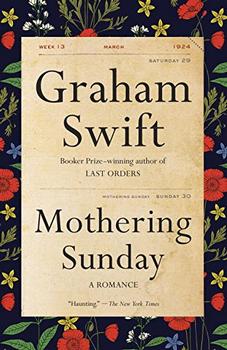Summary | Excerpt | Reviews | Beyond the book | Read-Alikes | Genres & Themes | Author Bio

A Novel
by Anna Lawrence PietroniIn Cradle Cross, where local women are characterized as "the Ruths and the Naomis," alliances run deep. Little surprise, then, that the arrival of a half-blind woman should raise suspicion or that much of the plot depends on the unraveling of three questions: who Isa Fly is, where she is from, and why she is here. Many a novel has begun with a stranger settling in a small town, but Anna Lawrence Pietroni has taken this familiar scenario and spun an intelligently conceived, atmospheric tale rife with maleficia, mermaid folklore, religious references and a darkness mirrored by the "Cut," the brackish canal dredged by a woman ominously known as "The Blackbird." She revisits themes including revenge, the power of rumors, and the nature of cruelty (whether premeditated or simply reactionary) in ways that gradually reveal how certain characters share a common bond.
Though Ruby's Spoon begins with an incendiary scene and backtracks to explain what led the characters there, we soon find that the mystery surrounding this situation isn't the main draw. Because we are given clues long before Ruby, the protagonist, has learned the truth, some momentum is lost by the time we learn how some of the characters are related and why their rivalry began. Far more page-turning than the revelation of one family's history is the manner of its telling, and it is here that Pietroni demonstrates a fine sensibility for drawing a complete world, from the Dickensian button factory to the lavender-scented priory. She uses delightful names such as "Truda Blick" and "Leonard Salt"; defines fishing-related terms; creates entries for an unusual almanac, and memorably marks her characters. We quickly associate Isa with her mirrored skirt, Truda with a city-dweller's mannerisms, and Ruby with the book her deceased mother left - a repository for seafaring ephemera and newspaper clippings that will eventually expose a distant crime.
Ruby emerges as one of the more unusual fictional teenagers in recent memory. She is not a precocious heroine, and is neither world-weary nor full of barbed witticisms. Refreshingly, she does not act more wisely than the adults in her life. She makes mistakes, and is a relatively normal, determined girl who longs to leave the landlocked countryside despite her grandmother's warnings. For all her occasionally headstrong ways, she also maintains a deep-seated respect for her elders as well as a remarkable loyalty to her newfound friends, Isa and Truda, who have embarked on a difficult course. To emphasize her commitment to them, she repeats a phrase from the Book of Ruth, "for whither thou goest, I will go. Where thou lodgest, I will lodge."
Many chapters follow Ruby as she questions her neighbors about Isa's father, a harsh man who once spent time in Cradle Cross, and who is the purported reason for Isa's presence. Patience is required when promising leads turn into false ones; the villagers often refuse to divulge what they know or have little information to share. The writing is rich with Black Country dialect and painterly scenes, all of which make this a novel to be read with care.
The portrayal of a close-knit community at precisely the moment when long-held debts and secrets begin to resurface recalls Shakespeare's verse: "at the length truth will out." The story is not without hope, however. Though the truth involves patriarchal sins, the appealing message from this provocative journey is that we may not be as bound by the circumstances of our birth as we may think. We can choose different paths, sometimes with help from unexpected sources. Ruby's Spoon allows us to immerse ourselves in an enchanted place, and more poignantly, shows us what it truly means to support someone through any event, even when it endangers one's life.
![]() This review
first ran in the February 17, 2010
issue of BookBrowse Recommends.
This review
first ran in the February 17, 2010
issue of BookBrowse Recommends.

If you liked Ruby's Spoon, try these:

by Graham Swift
Published 2017
A luminous, intensely moving tale that begins with a secret lovers' assignation in the spring of 1924, then unfolds to reveal the whole of a remarkable life.

The Little Giant of Aberdeen County
by Tiffany Baker
Published 2010
A multi-generational tale with many dark aspects and a touch of witchcraft, The Little Giant of Aberdeen County is the story of Truly - a girl grown massive due to a pituitary problem. Reviled and brought up in poverty, Truly finds her calling and a future that none expected.
To be ignorant of what occurred before you were born is to remain always a child
Click Here to find out who said this, as well as discovering other famous literary quotes!
Your guide toexceptional books
BookBrowse seeks out and recommends the best in contemporary fiction and nonfiction—books that not only engage and entertain but also deepen our understanding of ourselves and the world around us.